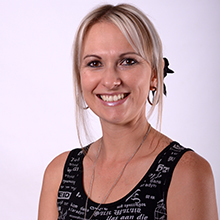In 2008 the world economy faced its most dangerous financial crisis since the Great Depression of the 1930’s. This global crisis had a severe impact on South Africa and its fellow BRICS countries (Brazil, Russia, China and India).
These countries – which have been dubbed the engines of economic growth –are well placed to take a leadership role in helping eradicate poverty by 2030, and just here lies the spark that fired a comparative research study by North-West University (NWU) economic experts, Prof Danie Meyer and Dr Natanya Meyer.
With their paper, “Assessment of inclusive growth performance: A comparative analysis of the BRICS countries”, they wanted to clarify the concept of inclusive growth, and also apply an alternative inclusive growth index.
An alternative approach to traditional comparison
Traditionally the economic prosperity of a country is measured by means of the gross domestic product (GDP) and the year on year economic growth reported for this indicator. However, the GDP approach has been criticised for not incorporating critical aspects such as human development, equality and social cohesion.
One of the most important and recent measurement concepts to emerge over the past decade is that of inclusive growth.
Natanya explains, “The prosperity of a country cannot merely be measured by its wealth and economic growth. In order for a true reflection of how a country is performing we have to see direct benefits to its citizens in the form of for example human development, education, equity, education and so forth. Therefore, inclusive growth and how it is measured is such an important topic of discussion.”
The inclusive growth index used in the study was developed by none other than Natanya herself. As the concept of inclusive growth is more relevant to less developed and developing countries which are most affected by socio-economic challenges, Natanya and Danie wanted to use the index to analyse and compare inclusive growth achieved by the BRICS countries from 1997 to 2017.
The research duo found that all five countries have achieved medium levels of growth, except for South Africa, which only achieved a low level of inclusive growth. India is the only country that has been able to improve its index since 2007 to some degree and South Africa has the lowest index of 41,8.
The conclusion of the study is that it is necessary for governments to intervene through improved policy implementation to ensure that all citizens have the opportunity to participate and benefit from economic and social aspects.
Prof Danie Meyer is the director of the NWU’s TRADE research focus area and his field of expertise include development economics, regional and local economic development, economic index development, macro-economic analysis and economic sectoral analysis.
Dr Natanya Meyer is a senior lecturer in management sciences in the Faculty of Economic and Management Sciences.

Prof Danie Meyer.

Dr Natanya Meyer.
#NWUWomen
